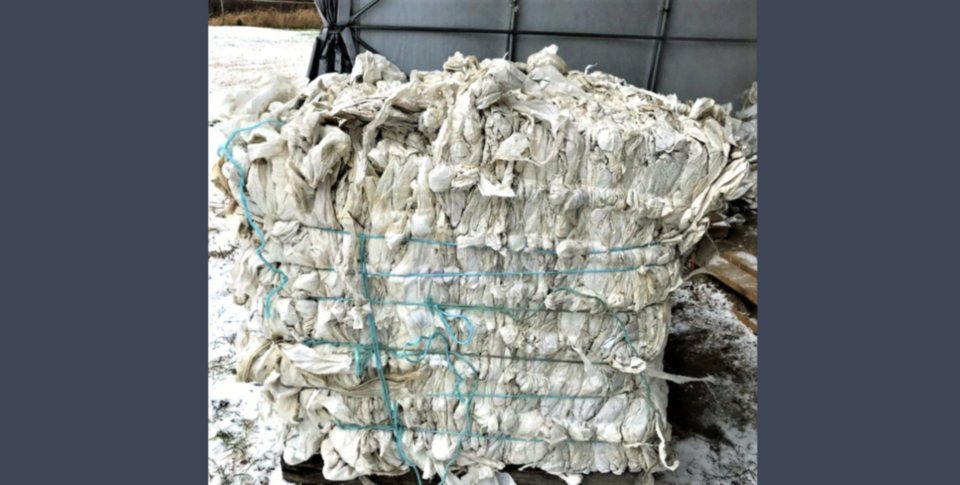The Township of Chisholm is doing its part to reduce the amount of plastic that ends up at the local landfill site.
The municipality is now compacting the plastic farmers use when bundling their hay or silage, and that compacted bundle is later shipped to a recycler.
The municipality bought its compactor for about $600, reports Jenny Leblond, Chisholm’s CAO and clerk-treasurer.
“Old-school farmers traditionally burned or buried the plastic wrapping, while others have taken it to the landfill site,” Leblond says.
“We try hard not to take the plastic at the landfill because it shortens the landfill’s life. Also, the plastic can’t be put out for regular recycling pickup.”
Leblond says she learned of the compactor through the Ontario Federation of Agriculture (OFA).
When she began working for Chisholm in January 2019, Leblond approached the federation about making a compactor, a device normally used by large farms, available to municipalities.
Both OFA and Chisholm town council bought into the idea and the apparatus arrived in August.
The compactor is a wood structure standing about six feet tall with slats.
See: Northern Ontario plastics disposal pilot launched
The plastic wrapping is dumped into the unit and slowly compressed by a heavy plate which squeezes out all the air.
Leblond says the compression period can take one or two days, and the end result is a bundled cube of plastic about five feet in height and 900 pounds.
Chisholm has produced one large bundle to date and expects that will be the case until the spring, Leblond says.
That’s because with the compactor’s arrival in late summer, most of the farmers had already disposed of their plastic earlier in the spring.
But, Leblond says, they will be accumulating more plastic over the winter as their bales of hay are unravelled for winter feeding of their animals.
“So next spring we should get a really good idea of who will be using it and how many farmers will bring their plastic to us,” she says.
Leblond says reaction has been positive since the municipality posted news of its compactor on its Facebook page.
“The environmentalists like it.” she says. “The Facebook post got a lot of likes, cares and hearts.”
Although environmentalists might be the most excited about the compactor, Leblond admits, a farmer who brought his plastic wrap for bundling to public works also was excited to see how the unit operated.
Leblond says farmers can drop off their plastic at public works every Friday and one Saturday each month, but they have to make an appointment.
There is no charge to compact the plastic, but it has to be mostly free of hay, silage and mud or the recycler may reject it.
“Also, we’re open to other municipalities asking to use the compactor,” Leblond says.
She says OFA will coordinate pickup of the bundled plastic and take it to a recycler at some point in the future.
In the meantime, it will sit at public works.
“We won’t get any revenue for this," Leblond admits. “But the benefit to us is we lengthen the life of our landfill. The less people bring to the landfill, the longer it lasts.”
Some people may not realize it, but once a landfill is at capacity, it has to be closed, she says. And there’s a cost associated with that, in addition to opening a new landfill.
At this time, Chisholm’s landfill has about 19 years of life left.
- Rocco Frangione, Local Journalism Initiative, North Bay Nugget.
